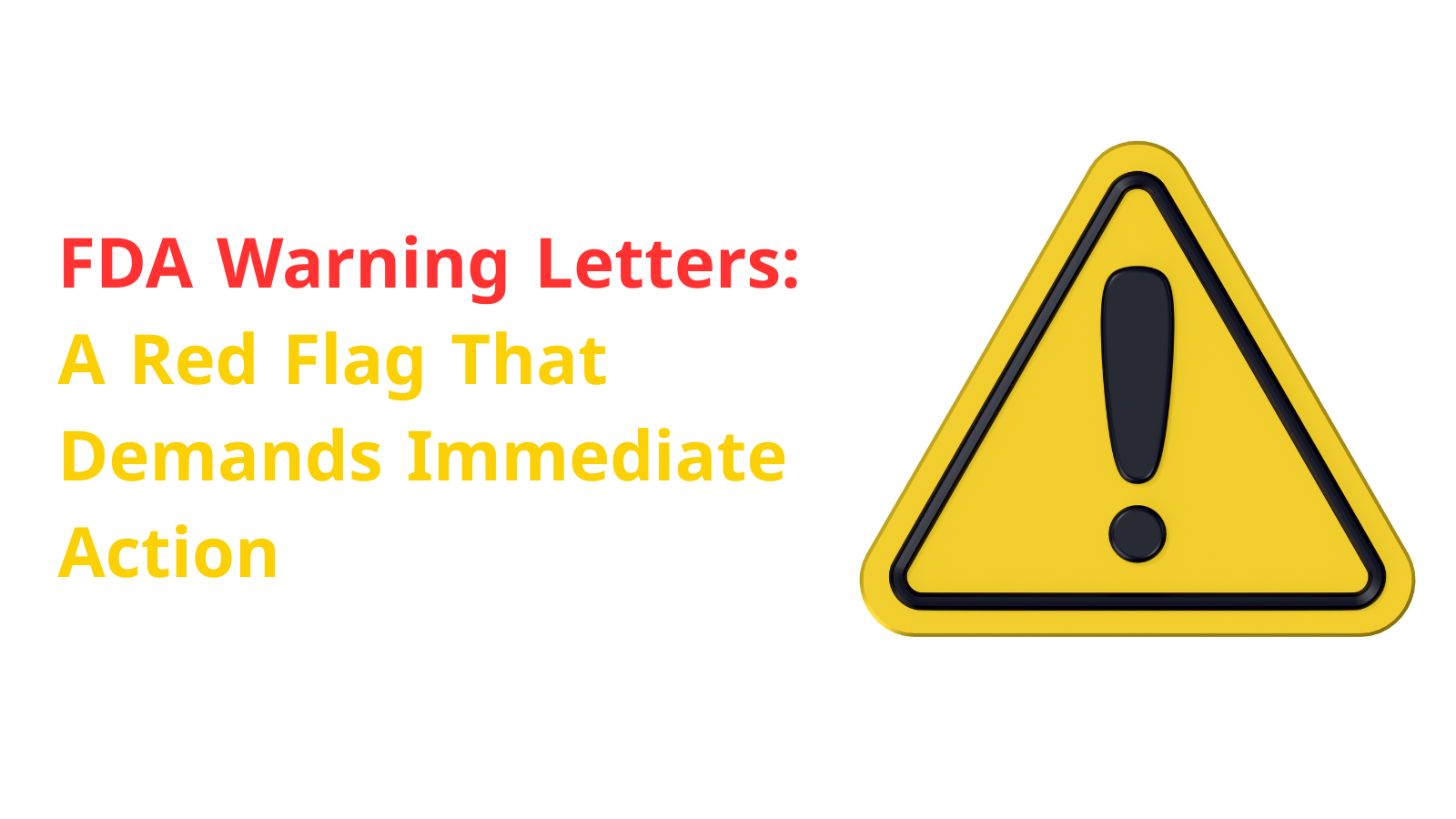tl;dr: FDA warning letters are serious red flags that indicate regulatory non-compliance. If not addressed properly, they can trigger follow-up inspections, damage a company’s reputation, and even lead to product recalls or facility shutdowns. Companies receiving these letters must act swiftly to correct violations, as failure to do so can result in severe penalties, including legal action.

Understanding FDA Warning Letters
The U.S. Food and Drug Administration (FDA) issues warning letters when a company violates regulatory requirements. These letters serve as official notices highlighting areas of non-compliance, usually related to Good Manufacturing Practices (GMP), product safety, labeling issues, or improper documentation.
Receiving a warning letter means that the FDA has identified significant violations that need immediate corrective action. Unlike a routine Form 483 observation, which highlights potential issues found during an inspection, a warning letter is a formal declaration that regulatory action will follow if the company does not resolve the problems effectively.
Consequences of Receiving a Warning Letter
1. Increased FDA Scrutiny and Follow-Up Inspections
Companies that receive warning letters typically face increased FDA inspections within 6 to 12 months. These follow-ups are rigorous and focus on verifying whether corrective actions have been implemented properly. If deficiencies persist, the FDA may escalate enforcement actions, such as import bans or facility shutdowns.
2. Damaged Reputation and Loss of Consumer Trust
Public trust is critical in industries regulated by the FDA, such as pharmaceuticals, food production, and medical devices. Warning letters are publicly available on the FDA’s website, meaning competitors, investors, and customers can see them. According to a 2023 report, 68% of businesses that received warning letters experienced a decline in stock value within six months.
3. Legal and Financial Repercussions
Failure to respond appropriately to a warning letter can lead to more severe consequences, including:
- Seizures and Recalls: The FDA can order product seizures or force a company to recall non-compliant products.
- Injunctions: Court orders may be issued to halt production until compliance is restored.
- Criminal Prosecution: If violations are deemed intentional or reckless, responsible individuals may face legal action.
For example, in 2022, a pharmaceutical company faced a $15 million penalty and product recall due to unresolved issues flagged in an FDA warning letter.
How to Mitigate the Impact of a Warning Letter
1. Act Immediately
- Respond to the FDA within 15 business days with a detailed corrective action plan.
- Assign a compliance team to address the cited violations.
2. Implement Corrective and Preventive Actions (CAPA)
- Conduct a root cause analysis to identify the underlying issues.
- Implement changes to prevent recurrence.
- Train employees on compliance requirements.
3. Engage Regulatory Experts
- Work with FDA compliance consultants to navigate the response process.
- Maintain transparent communication with the FDA to demonstrate commitment to compliance.
4. Strengthen Internal Compliance Measures
- Regular internal audits can help prevent future violations.
- Invest in quality management systems (QMS) to streamline compliance efforts.
Conclusion
FDA warning letters are not just minor regulatory hiccups—they can have lasting effects on a company’s operations, reputation, and financial health. However, by taking immediate corrective action, improving internal processes, and staying proactive about compliance, businesses can minimize risks and maintain FDA approval. Staying ahead of regulatory requirements is the best way to ensure continued success in FDA-regulated industries.
How Atlas Can Help
Navigating FDA compliance can be challenging, but Atlas simplifies the process. Atlas provides detailed observation reports and actionable insights to help businesses identify potential violations before they escalate into warning letters. With real-time data analysis, Atlas ensures companies stay ahead of regulatory requirements, minimizing risks and maintaining compliance effortlessly. Investing in a proactive compliance strategy with Atlas can save businesses from costly penalties and reputational damage.
I’m really impressed with your writing talents and also with the structure in your blog. Is this a paid theme or did you modify it your self? Either way stay up the nice quality writing, it is rare to peer a nice blog like this one nowadays. !